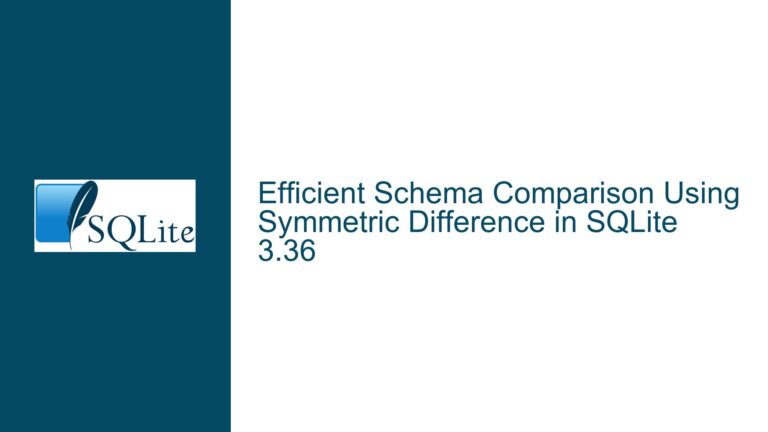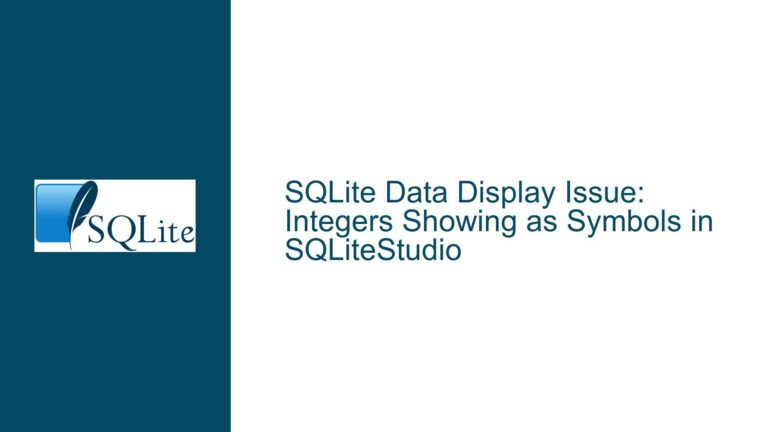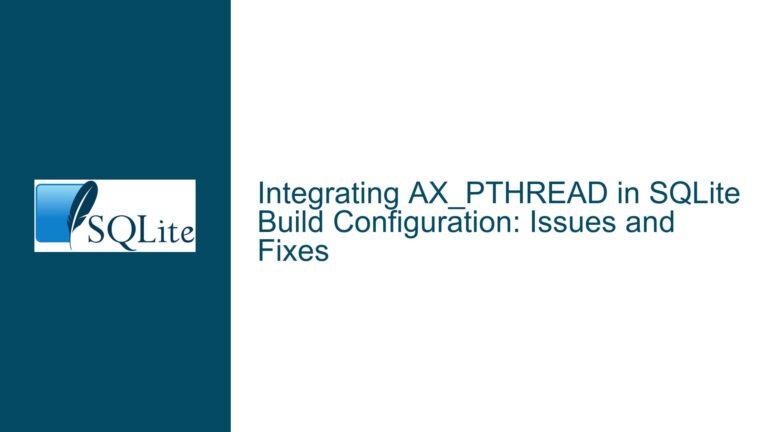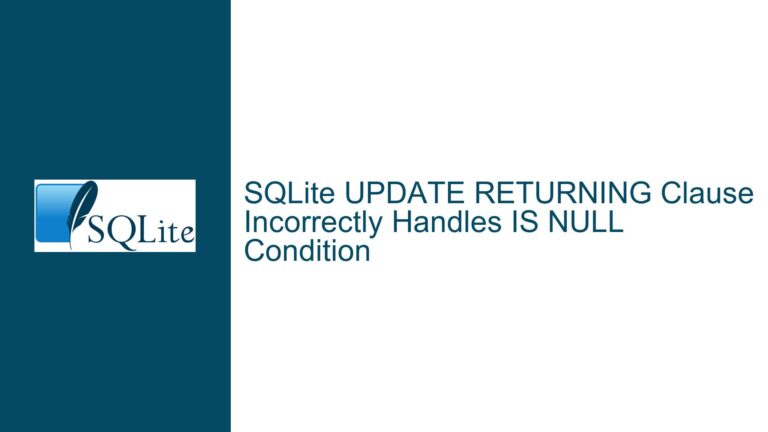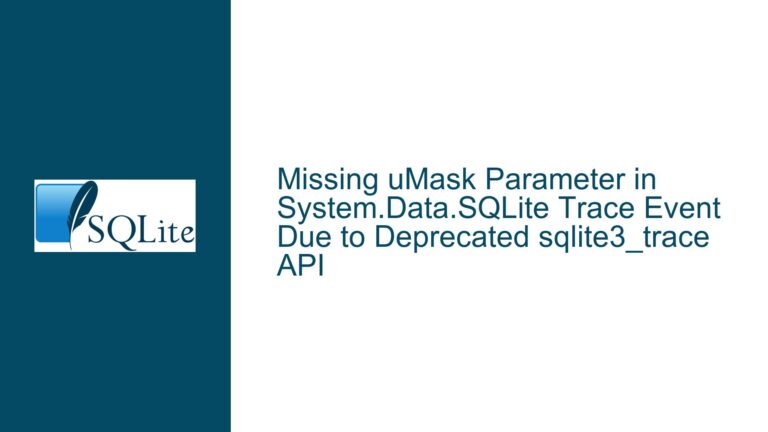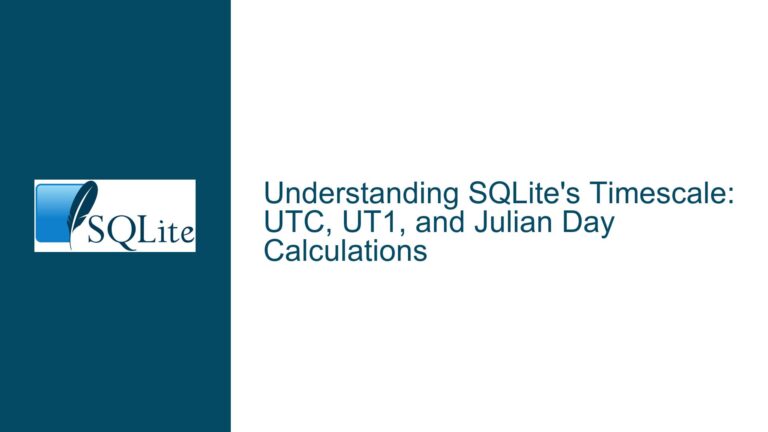Efficient Schema Comparison Using Symmetric Difference in SQLite 3.36
Understanding Symmetric Difference Requirements for Cross-Database Schema Validation Core Objective The problem involves comparing schema objects between two SQLite databases to identify discrepancies using symmetric difference (XOR) logic. The goal is to detect objects (tables, indexes, triggers, etc.) that exist in one database but not the other while excluding system tables (those prefixed with sqlite)….
